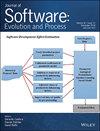Has Strategic Management Research Lost Its Way?
Journal of Software Maintenance and Evolution: Research and Practice
Pub Date : 2020-03-03
DOI:10.1561/111.00000004
引用次数: 17
Abstract
Strategic management research has strayed from its primary focus on efficient and effective management practice. We suggest a refocusing of strategic management research, based on the logic of discovery of real-world phenomena and strategic problems, with the goals of better enabling scholars to refine existing and develop new management theories. We demonstrate that historically, such a pragmatic, engaged, and problem-focused process helped produce many of the seminal works, groundbreaking concepts, and core theories in the strategic management field. We express our concern that many scholars are no longer developing or practicing sufficient skills to generate such impactful research. We propose that re-adopting this logic of discovery within the knowledge production process of engaged scholarship can produce both scientifically rigorous and practically relevant research. Such a research approach both develops new theoretical contributions and bridges the theory-practice gap by addressing real-world problems (and thereby creating economic value). We discuss some of the existing impediments to doing so and suggest changes in incentive systems ∗We thank Guatam Ahuja, Richard Bettis, Seth Carnahan, Lillian Cheng, Felipe Csaszer, Don Hambrick, Bruce Kogut, Michael Leiblein, James Mahoney, Cathy Maritan, Will Mitchell, Arvind Parkhe, Olga Petricevic, Jeff Reuer, David Teece, Alain Verbeke, and Sidney Winter for their thoughtful comments on earlier drafts of the paper. We also thank those who provided comments at our presentation at the 2016 annual Academy of Management meeting, and at subsequent seminars at Temple University, the University of Calgary, and the University of Michigan. Finally, we thank Strategic Management Review for the editors’ and reviewer’s helpful comments and suggestions for improving this manuscript through the review process. The usual disclaimer applies. ISSN 2688-2612; DOI 10.1561/111.00000004 © 2020 now Publishers, Inc.战略管理研究迷失方向了吗?
战略管理研究已经偏离了其对高效和有效的管理实践的主要关注。我们建议重新聚焦战略管理研究,以发现现实世界现象和战略问题的逻辑为基础,使学者能够更好地完善现有的管理理论并发展新的管理理论。我们证明,从历史上看,这种务实的、参与的、以问题为中心的过程有助于产生战略管理领域的许多开创性的作品、开创性的概念和核心理论。我们担心,许多学者不再发展或实践足够的技能来进行如此有影响力的研究。我们建议,在从事学术的知识生产过程中重新采用这种发现逻辑,可以产生科学严谨和实践相关的研究。这种研究方法既发展了新的理论贡献,又通过解决现实世界的问题(从而创造经济价值)弥合了理论与实践的差距。我们讨论了现有的一些障碍,并建议改变激励制度。我们感谢Guatam Ahuja, Richard Bettis, Seth Carnahan, Lillian Cheng, Felipe Csaszer, Don Hambrick, Bruce Kogut, Michael Leiblein, James Mahoney, Cathy Maritan, Will Mitchell, Arvind Parkhe, Olga Petricevic, Jeff Reuer, David Teece, Alain Verbeke和Sidney Winter对本文早期草稿的周到评论。我们也感谢那些在我们在2016年管理学会年度会议上的演讲,以及随后在天普大学、卡尔加里大学和密歇根大学举行的研讨会上提供评论的人。最后,我们感谢《战略管理评论》的编辑和审稿人在审稿过程中提出的有益意见和建议。通常的免责声明适用。ISSN 2688 - 2612;DOI 10.1561/111.00000004©2020 now Publishers, Inc.
本文章由计算机程序翻译,如有差异,请以英文原文为准。
求助全文
约1分钟内获得全文
求助全文
来源期刊
自引率
0.00%
发文量
0
审稿时长
9 months

 求助内容:
求助内容: 应助结果提醒方式:
应助结果提醒方式:


